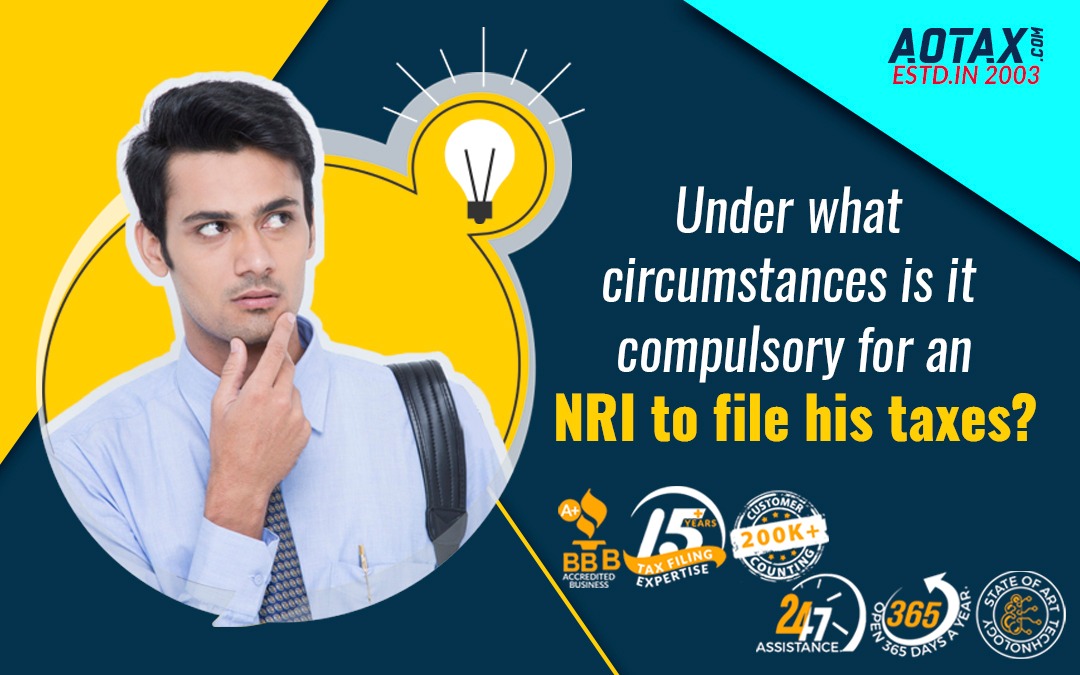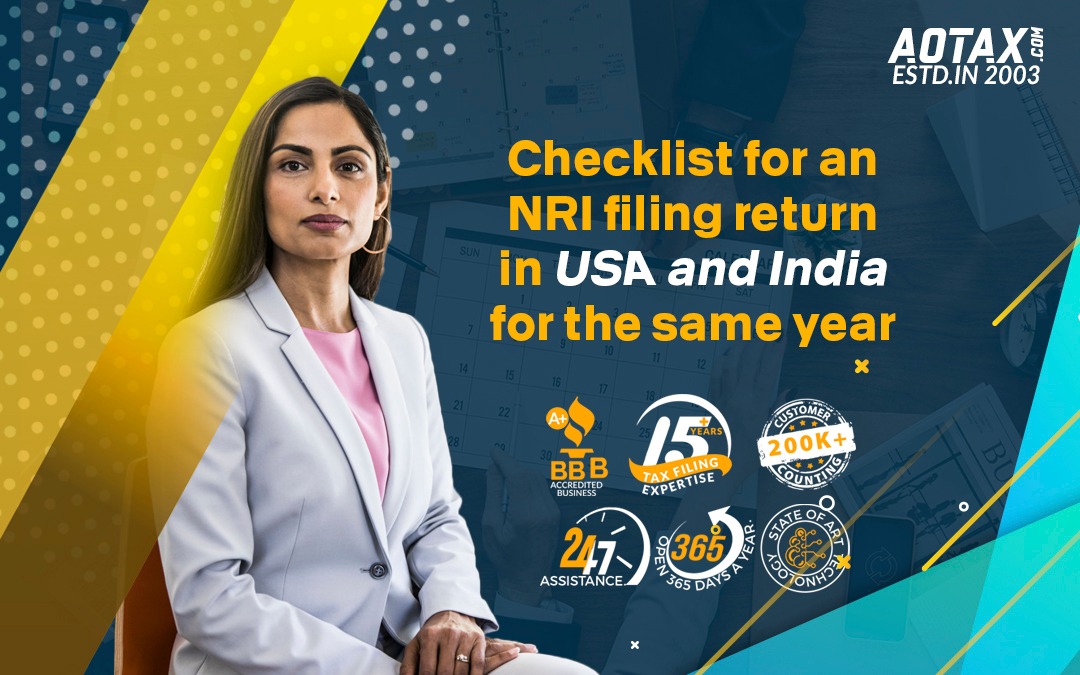
Under what circumstances is it compulsory for an NRI to file his taxes?
Under what circumstances is it compulsory for an NRI to file his taxes?
It is a common understanding that anyone who has a source of income in India and falls into the tax complusory for an NRI brackets must pay income taxes. But not many are aware of the fact that even NRIs might have to pay file taxes for their income in India. The NRI Taxation section of the Income Tax Act of 1961 governs thesetaxations. And there are a lot of differences when it comes to taxation for NRIs versus Indian residents.
Residential Status
The residential status of a taxpayer plays a crucial role in deciding the liability of taxes. Anyone who spends more than 182 days in India is considered as an Indian resident for that fiscal year. Similarly, if you have stayed for at least 60 days in the previous year and a total of 365 days or a complete year in the past 5 years in India, the status remains as an Indian resident. Otherwise, the taxpayer is considered as an NRI.
For Resident Indians, their global income is taxable in India. However, for NRIs the income accrued or earned in India is taxable. And irrespective of whether you are an NRI or resident, you must file tax returns if your income exceeds INR 2,50,000 for a fiscal year.
Taxable Income
If you earn money from any of the following avenues, your income is subject to income taxes. Of course, the actual amount of taxes largely depends on the income and the tax slab that you become a part of. Here are the incomes that you need to keep an eye on.
– Salary
If any of your services or employment is rendered in India and you are earning money on the same, it must be a part of income tax. For NRIs, if they receive income for the services that they provide in India, they will be taxed in India.
– Rental Property
If you own properties that you have rented out, you must pay taxes on the same. Tenants who pay their rent to their NRI must deduct 30% TDS. A tenant must submit Form 15CA to the income tax department. In certain cases, a certificate from a chartered accountant is needed (Form 15CB) in order to submit Form 15CA.
– Property
Any income that you receive from a property is also taxable as far as an NRI is concerned. The tax calculation remains more or less similar to that of a resident Indian. NRIs can take a standard deduction of 30%, benefits from any home loans on the property and deduct property taxes as well. NRIs can also seek for exemption under Section 80C for repayment of principal for any existing loans.
– Other income
Should you earn any interests in the form of fixed deposits or savings accounts which are held in India, you must pay taxes for the same. Any interest that you earn on NRE or FCNR accounts is non-taxable. However, for interests earned on NRO accounts, you must pay taxes. If you have any business set up in India and earn through them, the income is taxable in India.You must also pay taxes for capital gains of any form. Capital gain usually comes into the picture if you buy or sell properties, shares, securities etc. The profits that you make on these investments are taxable in India.
– Indian Assets
On investing in certain Indian assets, NRIs must pay as much as 20% in taxes. However, if it’s the only income for the fiscal year and TDS has been deducted, they need not file a return for the same.
These are some conditions where an NRI might need to file his/her taxes.





Recent Comments